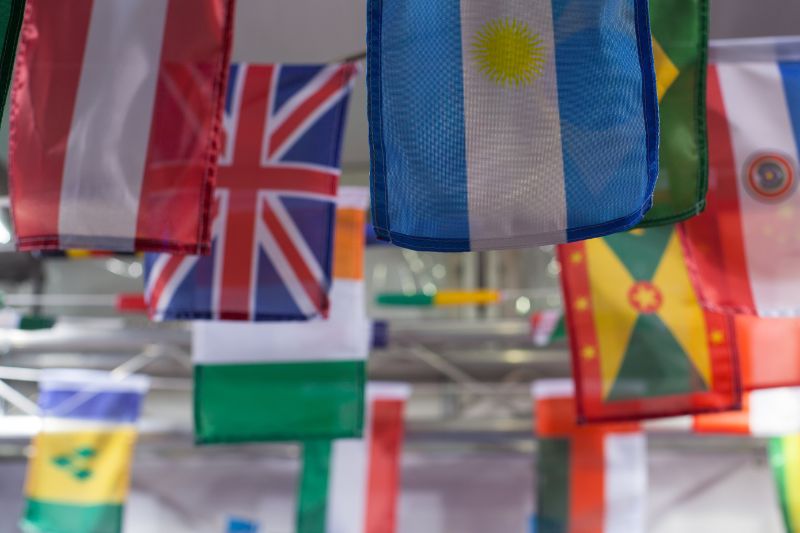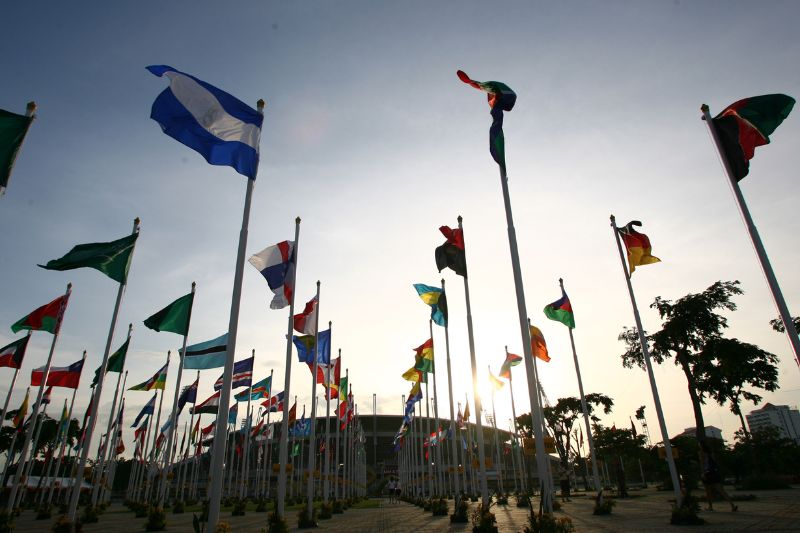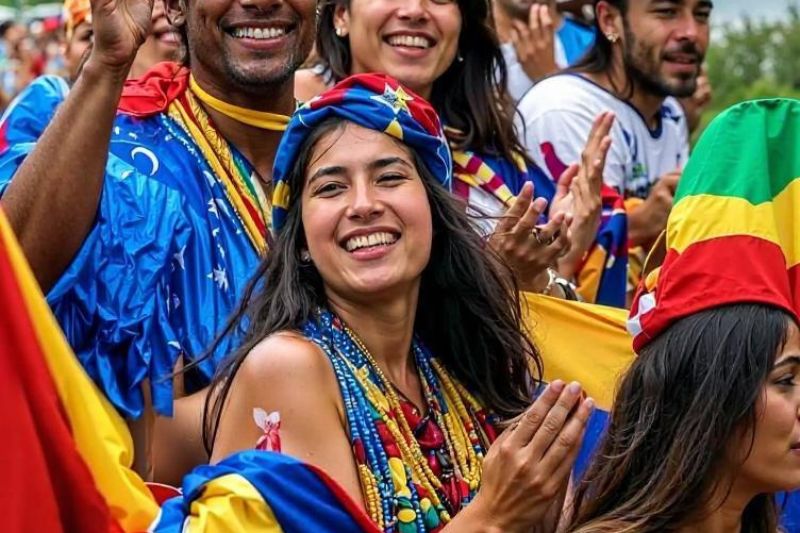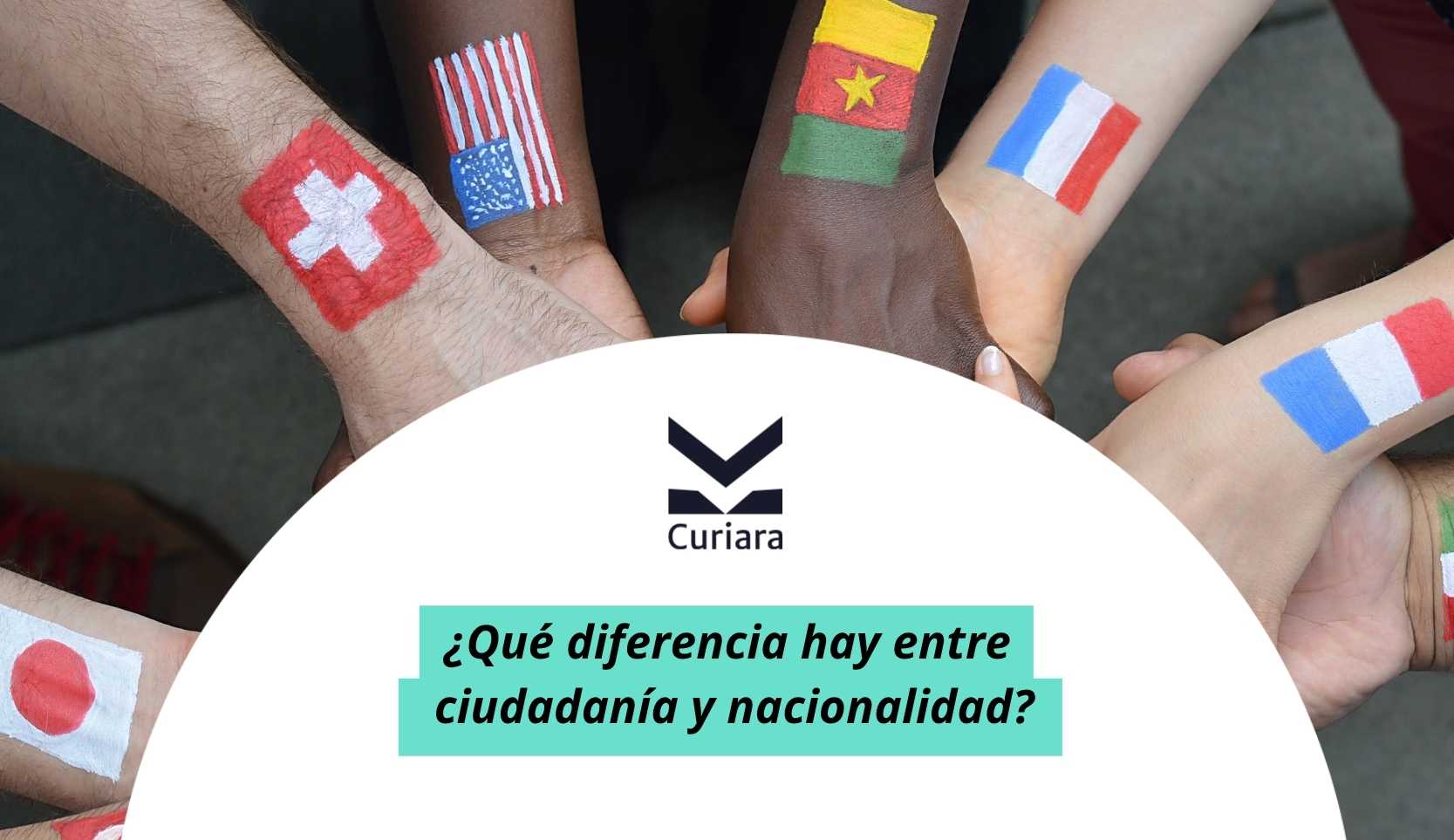The difference between citizenship and nationality is a subject that, although it may seem technical, has a profound impact on the lives of millions of people around the world.
Like Venezuelans who today reside far from our homeland, we have felt that emotional and legal duality between what one is by birth, and what one becomes by choice or circumstance.
Understanding these concepts is not only useful, it is necessary, especially for those who, like us, have had to leave our home in the past. country back in search of a better future.
What is nationality?

The nationality is the legal and political link that unites a person with a State from the moment of its birth or by legal adoption. It is, so to speak, the first formal link we establish with the world.
It defines us as members of a nation, and in most cases, is determined by the place where we are born or by the nationality of our parents.
For example, a person born in Caracasof parents Venezuelansautomatically acquires the Venezuelan nationality. This bond is permanent, except in exceptional cases, and connects us to the history, culture, language and traditions of the country to which we belong.
For many of us, the nationality is a symbol of identity, of emotional belonging, of roots.
What is citizenship?

On the other hand, the citizenship is the set of rights and duties that a person has within a State. It involves active participation in the political life, as the right at voteto run for public office, to receive legal protection and to contributing to society through taxes, education y work.
The citizenship can be purchased for birth or by naturalizationbut unlike the nationalitymay also be forfeited or waived, depending on the laws of the country in question.
In many cases, there are people who retain their nationalitybut lose the citizenship if, for example, they commit certain serious crimes o resign voluntarily to it in order to assume that of another country.
Why are these concepts confused?
The confusion between citizenship y nationality is due, in part, to the indistinct use they are often given in everyday language, even in official documents. However, the difference between citizenship and nationality is fundamental in legal and political terms.
A common example is the naturalized immigrants. You can purchase the citizenship of the country that hosts them, with all the rights y homework that this entails, but its nationality of origin may remain in force.
This occurs frequently in countries like United Stateswhere many Venezuelanshave found a second chance, a new life, but without leaving behind that deep feeling of continuing to be Venezuelans from the heart.
Citizenship without nationality, nationality without citizenship
Although it may sound contradictory, there are situations in which a person may have citizenship without having the nationalityor vice versa. This is another reason to understand the difference between citizenship and nationality is essential.
For example, in some European countriesa person can acquire the citizenship without being considered nationalespecially in disputed territories or under special regimes. There are also cases in which people have the nationality of a country, but do not exercise their citizenship for not residing in the country or for not complying with certain legal requirements.
The case of Latin America and the United States

At Latin America, citizenship y nationality are often closely linked, since at birth, most of the children of the countries automatically grant both statuses, with no practical distinction between one and the other.
This tradition reflects a vision where belonging to a group of people is country and participate in its political and social life go hand in hand.
However, by emigrate a United States, as many have done Venezuelanswe are faced with a legal system The concepts are more clearly separated. At USA USA. the nationality represents the legal link to the countrywhile the citizenship implies full rights, such as voting or holding public office.
A foreigner can obtain the cU.S. citizenship by naturalization if you meet certain requirements, such as time of naturalization. residencedomain, mastery of language and knowledge of the system politician.
But this process does not require giving up the nationality of origin, unless the person does so of his or her own free will. Thus, it is possible to be citizen American y national Venezuelan at the same time.
Legal and emotional implications

From the point of view of legalthe nationality is the foundation on which the international rightsdefines us in the world and determines our relationship with others. States and with the international community. It represents a legal bond which, beyond the administrative aspect, implies belonging, protection and recognition.
The citizenshipis, instead, the framework that regulates our position within a country specific. Through it, we participate in the political lifewe access civil rights and social responsibilities, and we assume duties that integrate us to the national community.
But beyond the legalThere are also profound emotional implications. For those of us who have had to leave behind the land of our origin, understanding the difference on citizenship y nationality becomes a way to reconcile us with our identity.
We often live in a constant duality, feeling that we belong to two different worlds or, sometimes, that we don't quite fit into either. However, it is precisely in this mixture, in this complexity of identity, that we find our as migrants.
Our history is built with fragments from here and there, with childhood memories and new adopted customs. This condition of "being between worlds" is not a weakness, but rather a source of empathyof global vision and of resilience.
In this context, learn some tips for coping with expatriate homesickness can make a big difference in our business emotional well-being.
When the longing becomes tiresome, it is useful to create small rituals that connect with our roots: cooking traditional dishes, such as the venezuelan creole pavilionmaintaining the language, sharing stories with other expatriates or being part of cultural communities...
Is it possible to change the nationality?

Yes, it is possible to change the nationalityAlthough this is a considerably less common and more complex process than the change of the citizenship. The nationality is linked to a deep sense of legal and symbolic belonging to a Stateand its modification involves more than a simple administrative procedure.
Some countries allow their citizens voluntarily renounce their nationality adopt that of another country, whether for legal reasons, such as facilitating immigration proceedingsThe following are the main reasons for conflicts with the State of origin or personal because of a need to roots and redefinition of identity in the host country.
However, changing nationality is not a light step. It involves meeting a number of demanding requirements, such as demonstrating prolonged residence in the country The country to which one wishes to belong, to know its language, to pass history or civic values exams, and, in many cases, to formally renounce one's previous nationality.
In addition, not all countries allow dual citizenshipThis forces those who are in this process to make difficult and sometimes definitive decisions. It is important to keep in mind that, once lost, recovering the nationality of origin can be extremely complicated or even impossible.
Change from nationality is, in a way, to redefine who we are in front of the world, but also in front of ourselves. It is not just a matter of roles, it is a decision that can reconfigure our site on the emotional map from which we come and on which we want to build our future.
A bridge between who we are and what we carry with us

Understanding the difference between citizenship and nationality not only helps us to clarify issues legal o administrative.
It teaches us that we can belong to more than one place, that our identity is not limited to one document or one political lawbut is built with every step we take, every step we take, every step we take, every step we take, every step we take, every step we take, every step we take. language that we learn, every custom we adopt, without renouncing who we are.
For those of us who have left Venezuelathe nationality is that invisible bond that continues to accompany us. Although our citizenships change, even if we live in other lands, we are still part of that corner of the world we call home.
And there are things that connect us beyond the papers: a song, a song, a Venezuelan sayinga meal...
At CuriaraWe know what it's like to live away from home and still feel that a part of you remains there.
Therefore, more than just a platform to send money to VenezuelaWe want to be that constant support that accompanies you in every step, in every choice you make thinking of your loved ones.


